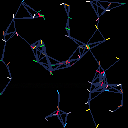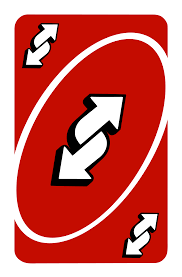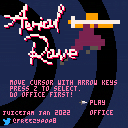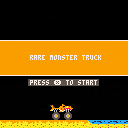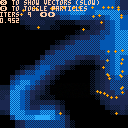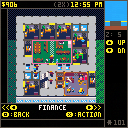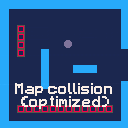


Inspired by Porklike by @Krystman
HELLCUBE is designed as a disposable arcade-ish roguelike game, basically as a "5 minute game", trying to offer a fast, but hopefully intense and fun gaming experience; Hope you enjoy :D





~ hey <INTERN NAME>
~ be careful when you boot your computer this morning
~ I left a cartridge in the slot: Intermediate Ideocartography
~ it’s kind of dangerous, but <REDACTED> did the same for me when I was an intern, and I think it’s a major reason why I survived here
~ you have to be willing to take risks
~ some notes about the cart:
~ a. it’s more complicated than the Beginner cart. You can use the arrow keys to move the map directly, gives you more control
~ b. you can also hop from seed to seed in the metalayers, use the mod key (Z) AND the arrow keys to do that
~ there’s an entropy network in place to prevent seed adjacency
~ you’re going to be frustrated but it’s for your protection
~ you can still get to any seed, just some are difficult
~ <REDACTED>
~ <REDACTED>
~ c. now the X button takes screenshots by default, but also saves a gif if you hold the mod button
~ d. you can press enter to get to a menu that lists the controls as well, now that text is permitted that kind of <REDACTED>

The typical external editor workflow keeps a .p8 file open in both PICO-8 and a text editor. The author edits code in the text editor, saves the file in the editor, then presses Ctrl-R in PICO-8 to reload and run the new version. The author also edits sprites, map, sfx, or music in PICO-8, saves the file in PICO-8, then reloads in their editor (automatically in some editors).
To prevent a potential accident, PICO-8 has a failsafe that blocks Ctrl-R with a warning message if it detects that the cart has changed in memory since the last time it was saved from PICO-8 and the file on disk has been updated by an external editor. PICO-8 makes no further attempt to help resolve the merge conflict: it's up to the author to rescue the external edits, save the cart from PICO-8, then re-apply the edits.
This failsafe considers the entire cart—code, graphics, sound—as a single document for this purpose. This makes triggering the failsafe common in the typical workflow: even when the author uses the external editor exclusively for code and the internal editors exclusively for art, failing to save changes in one before making changes in the other will block reloads.


In this arcade-style game, you need to collect all the items (blue circles) and avoid the enemies (red circles) in a circular stage to move to the next one. To do this, you need to move not only from left to right, but also dashing from one side of the stage to the other, which can be done with the O Button/Z Key. Try to clear as many stages as you can!
Controls:
- Left/Right - Move
- O Button/Z Key - Dash/Start
Thanks to the PICO-8 Discord server for all of the help and feedback!


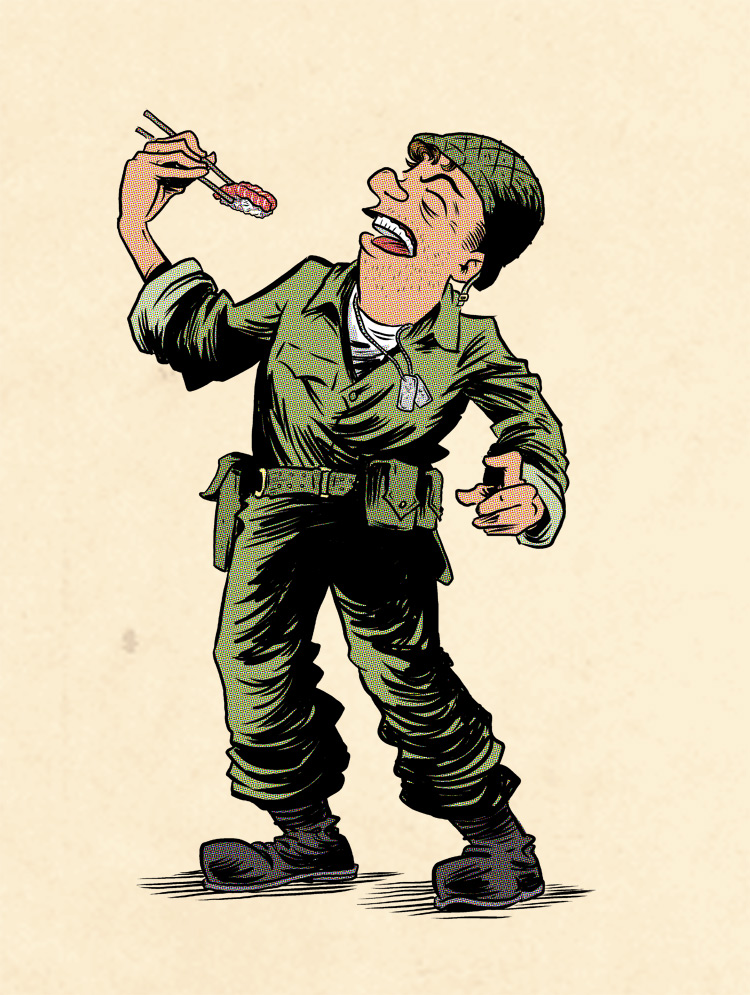
Final jam submission is here on the bbs! The "office" tutorial should hopefully teach how the game works, and address some of the problems people have been having figuring out the game. I've had very little time to playtest it (being a jam and all) so if anything still isn't clear or if you don't like something I'd like to hear your criticism!



I made a tool to launch your favorite games,
check it out here:
https://www.lexaloffle.com/bbs/?tid=46049

Rare Monster Truck
A monster truck game with an ordinary name
This one is mostly aimed for kids and mostly designed and named by a 5 year old, meaning low on challenge but still enough for a bit of fun. Plus who doesn't like monster trucks.
Like my ghost game, the truck IP is totally original. Any similarities with real life trucks is purely co-incidence.
Now start your engines and get to crushing.




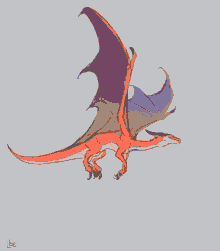


Controls
Z roll the dice
X stop rolling the dice/Continue
(i'm just now realizing how incredibly counter intuitive is to use stop and continue on the same button)
Ship captain crew is a dice game, I learned at a bar.
It can be a drinking game, but I've never played it that way (though I have always been drinking when I played it) I only know it as a basic very short gambling dice game.
The rules are pretty simple. But kinda hard to explain.
you are trying to get a 6(the ship) a 5 (the captain) and a 4 (the crew).
You roll all five dice, if you get a six you take it out and set it aside, same for five and four. Eventually you'll only have 2 dice left. These are your score (sometimes called cargo) you want the highest score.
The catch is that you have to get 6,5,4 in order.
For example if your first roll is 5,5,4,3,2 you get nothing. You must re-roll all dice. You cannot have a captain or a crew without a ship.
You re-roll and you get 6,4,4,3,3. You take the six and set it aside. You can't take one of the fours. You can't have a crew without a captain.
your final roll! 5,4,3,5. You take a five and set it aside then the four. You have eight points.
You could also get lucky, and on your first roll get 6,6,6,5,4 and suddenly have 12 points and stop right there.
-
the current highest score is called the point number.
-
Always keep rolling until you at least tie the point number.
-
You cannot re-roll only one of your final 2 dice. (its easier to code, but it's also the rules, at least at my local bar that plays it)
- In case of tie no one wins. The money stays in the pot, everyone who wants a chance at it pony's up another buck and you go again.
This game should follow the rules as I understand them. They might be regional, I've seen others online claim that in case of tie the people who are tied play against each other, but I like the "let it ride" approach. I've seen a game of roughly 10 people end up with about 50 dollars in the pot due to consecutive ties.
Also the winner starting the next round might be regional, i've seen online people saying it rotates, but starting is actually a disadvantage (it's better to go later) so I think it makes sense for the winner to start.
I might change the rolls to display how many rolls you have left. I'm not sure that'd be better.
I hope to add some weird role playing elements like a luck score that will make dice rolls work out better for you, and also make the CPU players behave differently and have their own luck scores.
Also I want a nice random-ey looking dice rolling animation
This follows the classic Stable Fluids paper by Jos Stam. Use your mouse.
A few things that would make this better:
- More optimization
- Higher resolution (if possible)
- monotonic cubic interpolation for advection (likely too expensive)
- MAC grid (NOPE - saves a lot of time to backtrace all quantities from cell centers instead. A MAC grid would mitigate some of the boundary artifacts here, but it's just too slow.)
- vorticity confinement (expensive, but probably the next most important thing)
- better smoke vis - bilinear interpolation? (almost certainly too expensive)
- higher resolution for smoke than for velocity?
- other forces: gravity / heat / etc.




Pico Tower
Office Tower Simulator
What is this
Pico Tower is a tower simulator in the vein of a scaled-down SimTower or Project Highrise.
Build offices and provide needed services to earn money. Grow your tower and unlock more features as your tower grows in height. Experiment with layouts to optimize travel times for your tower's occupants.
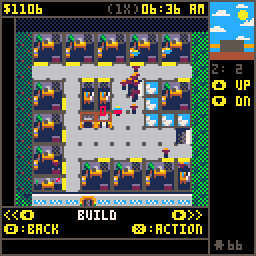
Tips
- Most rooms have an entranceway indicated by a yellow doorway. When building make sure this side is rotated to be accessible.
- If a meeple is travelling, they aren't making money! Optimize travel times to make sure offices stay profitable.
- If a meeple cannot find a nearby service they will eventually leave the building to meet their need elsewhere.

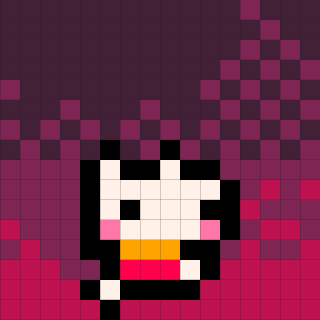

TL;DR
Run load #prof in your local PICO-8 console, then edit the last tab with some code you want to measure:
prof{
locals={9}, -- args to pass each function (optional)
function(x)
local _=sqrt(x) -- code snippet 1
end,
function(x)
local _=x^0.5 -- code snippet 2
end,
} |
Run the cart: it will tell you exactly how many cycles it takes to run each code snippet.
OVERVIEW
This tool measures precisely how many cycles it takes to run arbitrary snippets of code. I use it all the time when I'm trying to figure out the fastest way to write an algorithm. For example, it's massively helpful to know the fastest way to calculate abs(x) in a modular synthesizer that needs to run this operation tens of thousands of times per second.
For context, PICO-8 runs at 8 million cycles per second. This number is unimaginably large and yet also hundreds of times slower than most desktop computers. To keep things in perspective, I like to remember that 1400 cycles is equal to 1% of your CPU budget each frame (at 60 fps -- 8*1024*1024/60/100 = 1398.1)
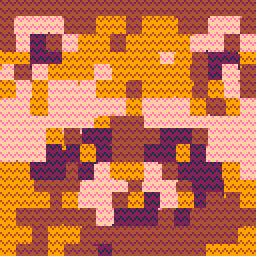

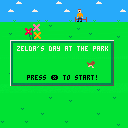
Hello and thank you for taking you time to look at this post. Please try out my first little game. Be gentle lol. it's just a day at the park with my dog Zelda playing fetch.





One post, two topics -- but I figured they are mildly related here since it's really up to zep in both cases :D
I know it's a long shot, but is there any chance of getting a port of PICO-8 to MIPS? Specifically, I want to be able to use my Abernic RG280V to play PICO-8 games on the Adam image (https://www.youtube.com/watch?v=kdIdiQ-dO_Y).
Second topic. Is official Apple Silicon (aka ARM64) support on the roadmap for the Mac version? I know the Intel version runs just fine under Rosetta, but there is still downsides to running Intel code on these machines, like additional memory and battery usage. Plus it future proofs things a little for the eventual (still years away) removal of Rosetta by Apple in a future OS update.










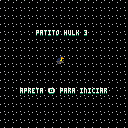
 1 comment
1 comment

